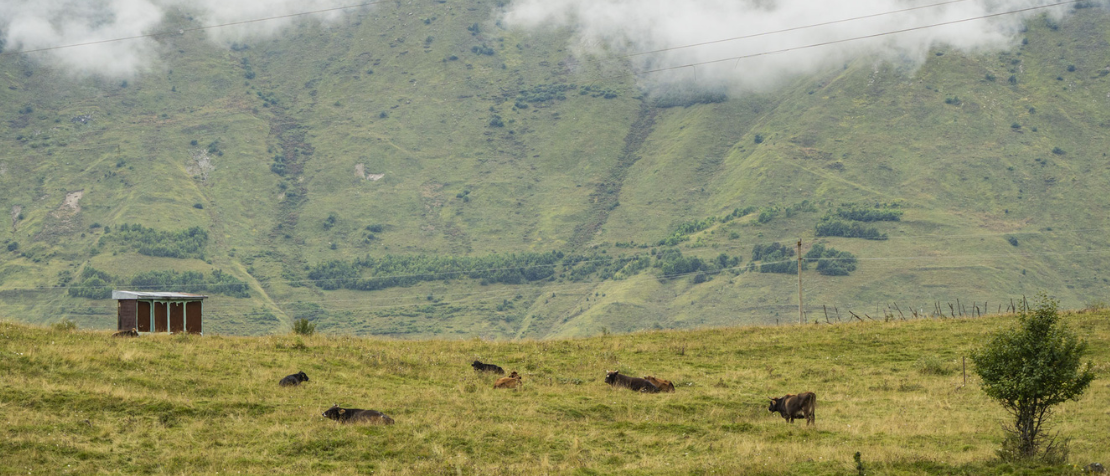FAO takes lead coordination role for the One Health approach in Europe and Central Asia

©FAO/Guram Saqvarelidze
The One Health approach recognizes the interconnections between people and ecosystems and aims to sustainably balance the health of people, plants, animals and the environment. The Food and Agriculture Organization of the United Nations (FAO) is strongly committed to this integrated, unifying approach. This was the core message, delivered by FAO Assistant Director-General and Regional Representative for Europe and Central Asia Viorel Gutu at a high-level meeting of the Regional One Health Coordination Mechanism today in Copenhagen when the chairmanship of the Mechanism was handed over from the World Organisation for Animal Health (WOAH) to FAO, ensuring continued collaboration on One Health priorities in the region.
The Regional One Health Coordination Mechanism for Europe consolidates cooperation between the regional offices of FAO, WOAH, the World Health Organization (WHO) and the UN Environment Programme (UNEP) – known as the ‘Quadripartite’ – helping countries of Europe and Central Asia address a wide range of issues through the One Health concept, within the human-animal-environment interface.
“FAO will strive to increase expertise and evidence by creating knowledge sharing opportunities and strengthening One Health information and science-based policies and platforms for action in general,” said Viorel Gutu when taking over the chairmanship of the Coordination Mechanism until early 2026 on behalf of FAO.
Additional speakers included Hans Kluge, Regional WHO Regional Director for Europe, and Arnold Kreilhuber, UNEP Regional Director and Representative, who both have reinforced the role of the Quadripartite, emphasizing the need to address health challenges at the human-animal-environment interface in the region.
At a time characterized by increasing outbreaks of animal diseases in the region, the meeting has served as a reminder to the importance of promoting One Health and the need for strong commitment of all participating organizations and countries to the One Health agenda. Quadripartite partners have also underscored the importance of leveraging strong partnerships, including, among others, with the European Union, and securing political and financial support to promote One Health across Europe and Central Asia. Additionally, participants discussed key achievements of the Regional One Health Coordination Mechanism in 2024 and reviewed the 2025 work plan.
“In our region, on average, the livestock sector contributes about 40 percent to the agriculture gross domestic product, despite that, the sector suffers from many problems that are impediment for success,” warned Gutu.
“FAO is committed to use the chairmanship as an opportunity to promote, advocate and implement the OH approach at the regional but particularly at the country level in its all aspects, AMR, zoonoses and environmental health,” he concluded.
Furthering the One Health approach
The complexity of today’s health challenges – including antimicrobial resistance and zoonotic diseases to food safety risks and climate-related health threats – calls for a One Health response. It offers a way to prevent future health crises, reduce economic losses, strengthen global health security, and promote sustainable development in a comprehensive and cost-effective manner.
Investing in One Health today is an investment in a safer, healthier, and more resilient tomorrow, leaving no one behind.
FAO promotes a One Health approach for the improved health of people, animals, plants, and the environment as part of the transformation of agrifood systems to be more sustainable and resilient. This involves a variety of actors and work on sustainable agriculture, animal, plant, forest and aquaculture health, food safety, antimicrobial resistance (AMR), food security, nutrition, and livelihoods. In Europe and Central Asia, the three FAO Regional Priority Programmes are facilitating the integration of the One Health principles into national policies for agrifood systems transformation.
